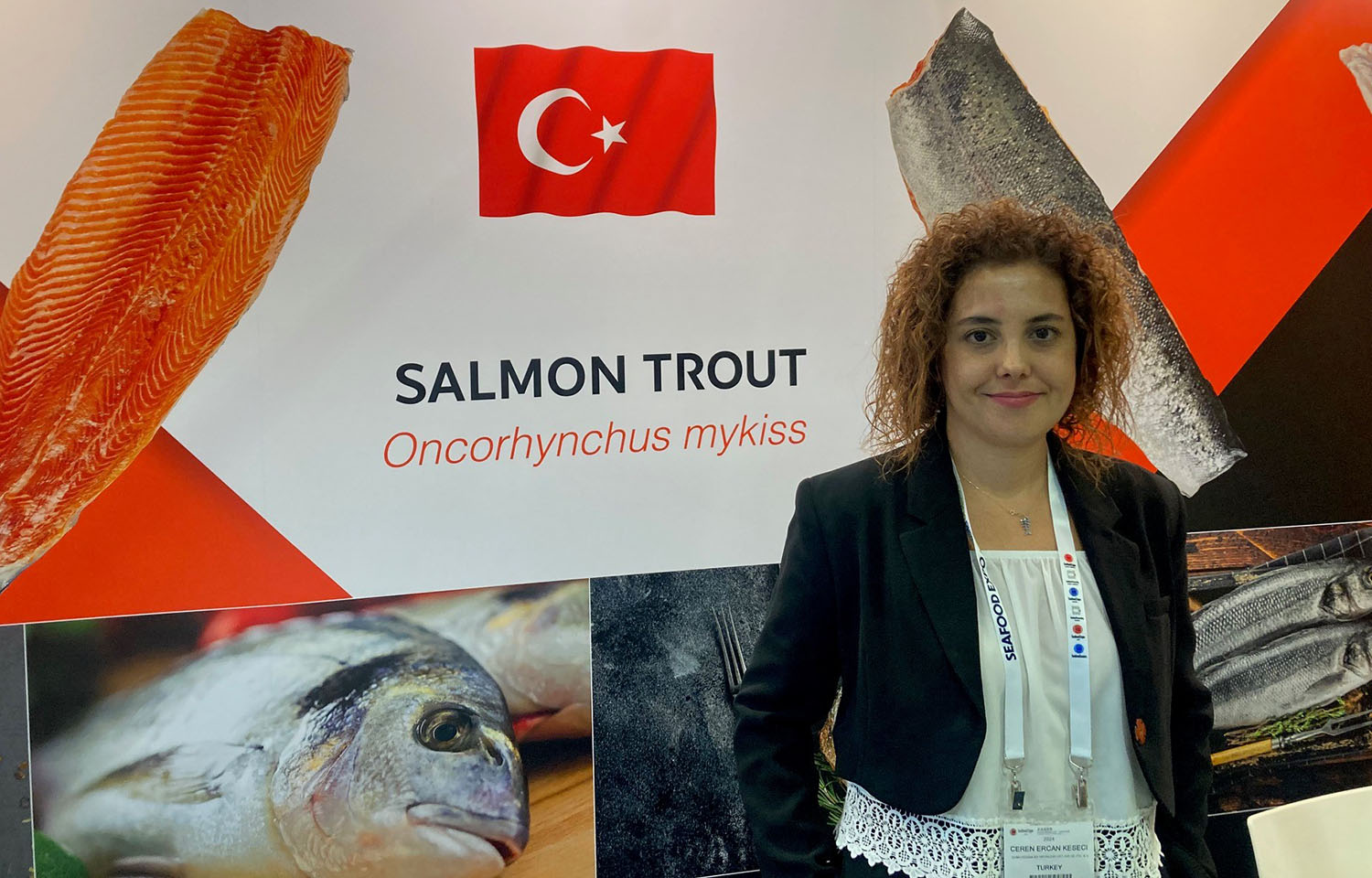Gumusdoga Seafood, one of Turkey's larger aquaculture firms, recently cut production in response to shrinking demand. But, it doesn’t plan to do so again.
Founded in 1997, Gumusdoga has remained family-owned, even as it has grown into one of Turkey’s top seafood firms, conducting farming, feed production, processing, and exporting. It employs 2,000 people in Turkey, ranks in the top 100 largest Turkish companies, and exports to more than 45 countries. It now produces more than 260,000 metric tons (MT) of feed; 45,000 MT of sea bass, sea bream, and meagre; and 8,000 MT of steelhead, also marketed as salmon-trout or Turkish salmon, according to Gumusdoga International Sales Director Ceren Ercan Keseci.
Gumusdoga invested in its farming capacity in 2019 through a major contract with AKVA group to expand its cages and farming area in Gulluk Bay in southwest Turkey. The project merged three existing farms in the Muğla region into a new site that became the largest bass and bream farm in the country.
Difficulties exporting during the Covid-19 pandemic and the recent drop in global seafood consumption caused by worldwide inflation forced Gumusdoga to pull back on its total volume of production, but Keseci said her firm is confident it doesn’t need to cut any deeper.
“A lot of seafood companies are struggling right now because after Covid, there was a huge bump in demand, but then it came down. So we decrease in response,” Keseci said. “But, we are not planning to decrease anymore. We will be stable, or maybe we will increase [production]. Things are stabilized and looking better now. There's a little more positive momentum.”
Like many Turkish bass, bream, and salmon-trout firms, Russia is Gumusdoga’s primary market, but it also exports to Singapore, Malaysia, and other Asian countries, where the company has made a push to increase its sales presence. It serves the Southeast Asia market primarily with fresh, gutted salmon-trout, and frozen fish as well.
Global demand for Turkish salmon spiked two years ago, but Keseci said it was hard to ride the peaks and valleys of demand and that Gumusdoga is relieved to see a more stabilized market for the fish.
Despite fierce competition between Turkish firms, there is also a sense of camaraderie as the nation seeks to establish itself as a world leader in production of salmon-trout, alongside Chile and Norway, according to Keseci.
“We are competitors, but we discuss our place in the market. Norway is more expensive, and for many markets, Chile is so far away. So we think we have an advantage,” Keseci said.
Turkish producers are also benefiting from relative political stability in Turkey, Keseci said.
“Everything is feeling more stable in Turkey. It feels like business as usual there, and everyone's doing well,” she said.








